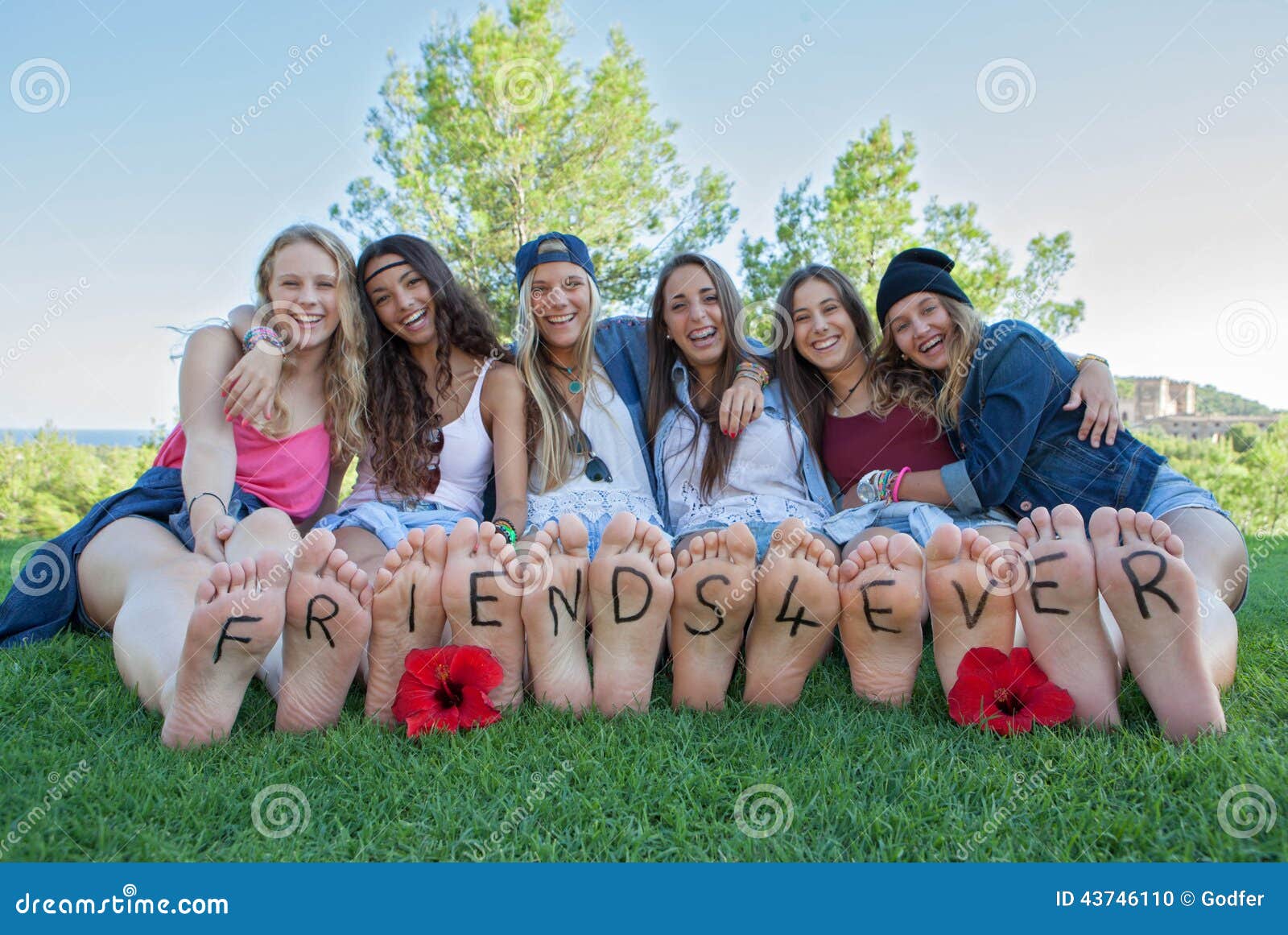Friendship is a universal human experience, a bond that transcends borders and languages. Yet, the way different cultures perceive, express, and value friendship can vary significantly. In the Russian language and culture, the concept of "friend" is particularly rich, imbued with layers of meaning, emotional depth, and historical context that go far beyond a simple translation. Understanding these nuances is crucial not only for linguistic accuracy but also for grasping the intricacies of Russian social dynamics.
This article delves into the multifaceted world of "friend" in Russian, exploring the primary vocabulary, grammatical considerations, cultural implications, and common idiomatic expressions that paint a vibrant picture of this cherished human connection.
I. The Core Vocabulary: Друг (Drug) and Подруга (Podruga)
At the heart of Russian friendship vocabulary lie two fundamental words: друг (drug) and подруга (podruga). These are the direct translations for "friend," but their usage is strictly gender-specific in their singular forms.
-
Друг (drug): This masculine noun refers to a male friend. It is a powerful word, denoting a deep and meaningful connection.
- Pronunciation:
- Plural: Друзья (druz’ya). Interestingly, the plural form is gender-neutral and can refer to a group of male friends, a mixed group of friends, or even (less commonly, but possible) a group of female friends if the speaker is emphasizing the collective friendship rather than individual gender.
- Example: У меня есть хороший друг. (U menya yest’ khoroshiy drug.) – I have a good (male) friend.
- Example: Мы с друзьями пойдём в кино. (My s druz’yami poydyom v kino.) – My friends and I will go to the cinema. (This could be male friends or a mixed group).
-
Подруга (podruga): This feminine noun refers to a female friend. It carries a similar weight of intimacy and trust as "друг."
- Pronunciation:
- Plural: Подруги (podrugi). This plural form specifically refers to a group of female friends.
- Example: Моя лучшая подруга живёт далеко. (Moya luchshaya podruga zhivyot daleko.) – My best (female) friend lives far away.
- Example: Она встретилась с подругами в кафе. (Ona vstretilas’ s podrugami v kafe.) – She met her (female) friends at the cafe.
Grammatical Considerations: Declensions of Друг and Подруга
Like most Russian nouns, друг and подруга undergo declension, changing their endings depending on their grammatical case in a sentence. Understanding these changes is vital for correct usage.
Declension of Друг (Masculine Noun):
| Case | Singular | Plural | Example Sentence | Translation |
|---|---|---|---|---|
| Nominative | друг | друзья | Друг пришёл. | The friend (m) came. |
| Genitive | друга | друзей | У меня нет друга. | I don’t have a friend (m). |
| Dative | другу | друзьям | Я звоню другу. | I’m calling my friend (m). |
| Accusative | друга | друзей | Я вижу друга. | I see my friend (m). |
| Instrumental | другом | друзьями | Я разговариваю с другом. | I’m talking with my friend (m). |
| Prepositional | о друге | о друзьях | Мы говорим о друге. | We are talking about our friend (m). |
Declension of Подруга (Feminine Noun):
| Case | Singular | Plural | Example Sentence | Translation |
|---|---|---|---|---|
| Nominative | подруга | подруги | Подруга ждёт. | The friend (f) is waiting. |
| Genitive | подруги | подруг | Это подарок для подруги. | This is a gift for my friend (f). |
| Dative | подруге | подругам | Я помог подруге. | I helped my friend (f). |
| Accusative | подругу | подруг | Я встретил подругу. | I met my friend (f). |
| Instrumental | подругой | подругами | Она пошла гулять с подругой. | She went for a walk with her friend (f). |
| Prepositional | о подруге | о подругах | Мы часто говорим о подруге. | We often talk about our friend (f). |
II. Shades of Acquaintance: Beyond the Deep Bond
While друг and подруга signify close relationships, Russian offers other words to describe different levels of acquaintance, reflecting a more nuanced social hierarchy than English often does.
-
Приятель (priyatel’) / Приятельница (priyatel’nitsa):
- These words denote a more casual acquaintance, someone you know and like, but with whom you don’t necessarily share deep secrets or rely on for significant support. It’s often translated as "acquaintance" or "chum."
- Приятель (masculine), Приятельница (feminine).
- Plural: Приятели (priyateli) (gender-neutral for mixed groups, or male), Приятельницы (priyatel’nitsy) (female).
- Example: Он мой приятель по работе. (On moy priyatel’ po rabote.) – He’s a work acquaintance/chum of mine.
- Cultural Note: Using
приятельinstead ofдругcan subtly indicate a less intense relationship. If someone introduces you as theirприятель, it means "we’re cool, but not besties."
-
Знакомый (znakomyy) / Знакомая (znakomaya):
- This is the most superficial level of acquaintance. It literally means "known person" (from the verb
знать– to know). You recognize them, you might exchange pleasantries, but there’s no real personal connection. - Знакомый (masculine, also the adjective "familiar"), Знакомая (feminine, also the adjective "familiar").
- Plural: Знакомые (znakomye) (gender-neutral).
- Example: У меня много знакомых, но мало друзей. (U menya mnogo znakomykh, no malo druzey.) – I have many acquaintances, but few friends.
- This is the most superficial level of acquaintance. It literally means "known person" (from the verb
-
Товарищ (tovarishch):
- Historically,
товарищ(comrade) was extremely common during the Soviet era, used to address virtually anyone regardless of their actual relationship. While its political connotations have faded, it still exists. - In modern usage,
товарищcan refer to a companion, colleague, or even a somewhat formal way to address someone in a group, especially in a work or military context. It rarely means "friend" in the intimate sense ofдруг. - Example: Товарищ майор, разрешите обратиться. (Tovarishch mayor, razreshite obratit’sya.) – Comrade Major, may I address you?
- Example: Мы были товарищами по команде. (My byli tovarishchami po komande.) – We were teammates/companions on the team.
- Historically,
III. Expressing Types of Friendship
Just as in English, Russian has ways to specify the nature or depth of a friendship:
- Лучший друг / Лучшая подруга (luchshiy drug / luchshaya podruga): Best friend (masculine/feminine).
- Близкий друг / Близкая подруга (blizkiy drug / blizkaya podruga): Close friend.
Близкийliterally means "close" or "near." - Старый друг / Старая подруга (staryy drug / staraya podruga): Old friend (implies a long-standing friendship, not necessarily age).
- Друг детства (drug detstva): Childhood friend.
- Настоящий друг (nastoyashchiy drug): True friend. This emphasizes sincerity and loyalty.
- Верный друг (vernyy drug): Loyal friend.
IV. The Concept of Дружба (Druzhba) – Friendship Itself
The abstract noun дружба (druzhba) means "friendship." It is a concept held in very high regard in Russian culture.
- Example: Их дружба длилась десятилетиями. (Ikh druzhba dlilas’ desyatiletiyami.) – Their friendship lasted for decades.
Russian friendship is often characterized by:
- Depth and Intensity: Russian friendships often run very deep. There’s an expectation of mutual support, honesty (even bluntness), and a willingness to go to great lengths for a friend.
- Loyalty: Loyalty is paramount. A true friend is someone who stands by you through thick and thin.
- Shared Experiences: Friendships are often forged through shared experiences, especially challenging ones, which builds a strong sense of camaraderie.
- Openness: Friends are expected to be open and vulnerable with each other, sharing their joys, sorrows, and deepest thoughts.
V. Diminutives and Endearments
Russian is rich in diminutives, and друг and подруга are no exception. These forms add a layer of affection, tenderness, or sometimes even irony.
- Дружок (druzhok) / Дружочек (druzhochek): Diminutive forms of
друг. Often used endearingly for a young boy, a pet, or playfully among close friends.- Example: Привет, дружок! Как дела? (Privet, druzhok! Kak dela?) – Hi, buddy! How are you?
- Подружка (podruzhka) / Подруженька (podruzhen’ka): Diminutive forms of
подруга. Commonly used for girlfriends, young female friends, or with a sense of warm familiarity.- Example: Мы с подружками идём на вечеринку. (My s podruzhkami idyom na vecherinku.) – My girlfriends and I are going to a party.
VI. Proverbs and Idioms about Friendship
Russian culture has a wealth of proverbs and idioms that highlight the importance and characteristics of friendship:
-
"Старый друг лучше новых двух." (Staryy drug luchshe novykh dvukh.)
- Translation: An old friend is better than two new ones.
- Meaning: This proverb emphasizes the value of long-standing, tested friendships over superficial or recent acquaintances. It highlights loyalty and trust built over time.
-
"Друг познаётся в беде." (Drug poznayotsya v bede.)
- Translation: A friend is known in trouble (or, a friend in need is a friend indeed).
- Meaning: True friendship is revealed during difficult times. A real friend will offer support and assistance when you need it most.
-
"Не имей сто рублей, а имей сто друзей." (Ne imey sto rubley, a imey sto druzey.)
- Translation: Don’t have a hundred rubles, but have a hundred friends.
- Meaning: This proverb underscores that human connections and support are more valuable than material wealth. Friends offer a richness that money cannot buy.
-
"Скажи мне, кто твой друг, и я скажу, кто ты." (Skazhi mne, kto tvoy drug, i ya skazhu, kto ty.)
- Translation: Tell me who your friend is, and I will tell you who you are.
- Meaning: This suggests that a person’s character and values can be inferred from the company they keep. It speaks to the idea of "birds of a feather flock together."
-
"Дружба – это не услуга, за неё не благодарят." (Druzhba – eto ne usluga, za neyo ne blagodaryat.)
- Translation: Friendship is not a service; you don’t thank for it.
- Meaning: This profound proverb implies that acts of kindness, help, and support within a true friendship are not transactions. They are given freely and without expectation of explicit thanks, as they are an inherent part of the bond itself.
VII. Cultural Nuances and Expectations in Russian Friendship
The deep roots of friendship in Russian culture mean that there are often unwritten rules and expectations:
- Honesty, even when harsh: A Russian friend might offer direct, sometimes critical, feedback. This isn’t meant to be hurtful but is seen as a sign of genuine care and a desire for your well-being.
- Hospitality: Opening one’s home and sharing food and drink with friends is a cornerstone of Russian hospitality. Expect hearty meals, long conversations, and perhaps a shot of vodka.
- Emotional Investment: Russian friendships often involve a significant emotional investment. Friends share their joys and sorrows deeply, and there’s an expectation of empathy and mutual understanding.
- Time and Effort: Maintaining friendships requires time and effort. Regular communication, shared activities, and being present during important life events are crucial.
- Less emphasis on "social media friends": While Russians use social media, the term
другon platforms like VKontakte doesn’t carry the same weight as a real-lifeдруг. The distinction between an online connection and a true friend is often very clear.
Conclusion
The concept of "friend" in the Russian language is far more than a simple word; it’s a window into a culture that deeply values loyalty, honesty, and profound human connection. From the specific gendered nouns друг and подруга to the nuanced layers of приятель and знакомый, the vocabulary reflects a precise understanding of social relationships. The rich tapestry of proverbs, the expectation of deep emotional investment, and the unwavering commitment found in дружба all underscore the significance of these bonds.
For anyone learning Russian or engaging with Russian speakers, appreciating these linguistic and cultural subtleties is paramount. It allows for not just accurate communication, but also a deeper, more authentic connection, fostering mutual understanding and respect. To truly have a "друг" in Russia is to experience a bond built on shared history, unwavering support, and a profound sense of camaraderie that withstands the test of time and circumstance.


